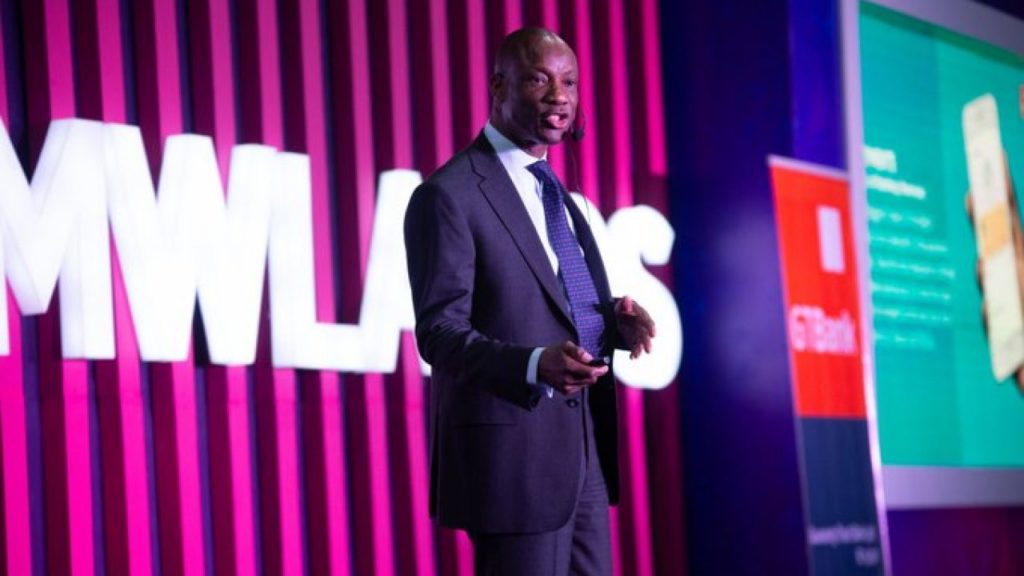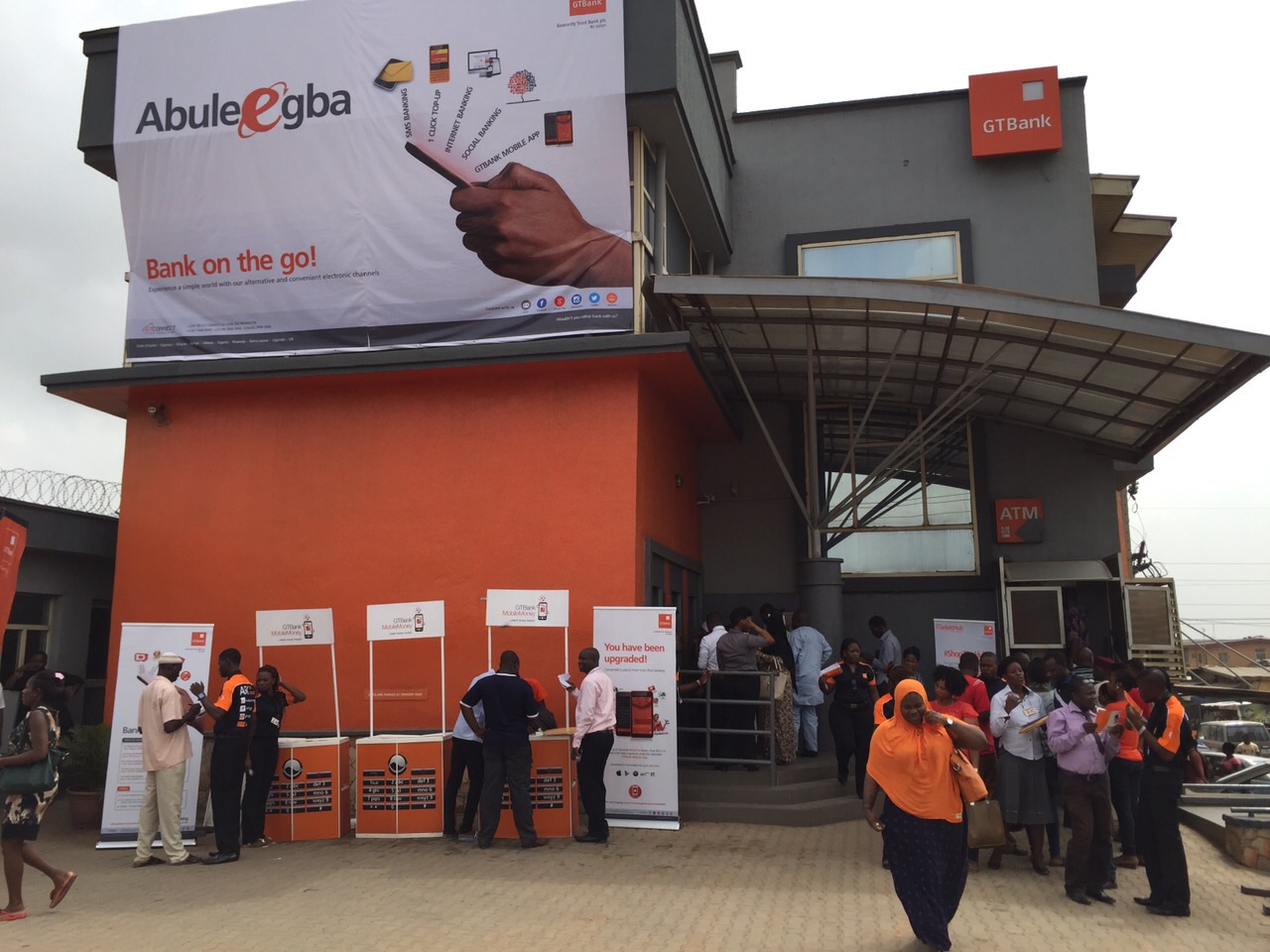There’s an ongoing consolidation in the Nigerian banking scene. Zenith Bank and Union Bank, two of the country’s biggest banks are reportedly having merger talks. First Bank, Nigeria’s oldest and biggest bank, is planning to acquire two smaller banks. But the most interesting move is coming from Guarantee Trust Bank (GTBank), another too big to fail bank.
GTBank wants to restructure as a holdings company. Its CEO, Segun Agbaje, made the disclosure during the bank’s earnings call for the fourth quarter of 2019.
A holding company is a form of financial organization that owns a controlling interest in other businesses, called subsidiaries. For GTBank, the restructuring will allow the bank to develop other businesses beyond pure banking, he said.
Before 2012, GTBank operated a number of non-banking services. It operated GTB Asset Management for capital market services and GT Assurance, its insurance arm. However, a 2010 regulation by the Central Bank of Nigeria (CBN) forced banks to stop operating their non-banking subsidiaries. They either had to divest from non-core lending service or restructure as a holdings company.
Most banks chose to divest. GTBank sold GTB Asset Management; it is now known as Investment One. Meanwhile, a consortium of investors acquired GT Assurance and renamed it Mansard Insurance. Today it’s known as AXA Mansard Insurance.
Other banks chose to switch to the holdings model. First Bank restructured under a holding company in 2012, Stanbic IBTC and FCMB followed suit.
Banking is no longer sexy
But GTBank is not restructuring to offer more banking services. Its main aim is to develop fintech products and build out its payments and fintech arms.
“About 10 years ago, we made a decision then looking at the operating environment, that we were going to shed all our subsidiaries and become completely bank-focused,” Segun Agbaje told analysts during the recent earnings call.
“Everything we have seen over the last 2, 3 years, has told us that it’s time to have a bit of a rethink.”
Despite recording a 6.6% profit increase to ₦231.7 billion ($640.4 million) in 2019 and adding over 7 million new customers within two years, Agbaje isn’t satisfied. Sounding like a startup founder hungry for growth, he explained that pure banking isn’t growing fast enough.
“Most banks are growing 5% to 7%. We don’t think that’s sustainable,” he told analysts.
Banks also have weak valuations, he believes.
“When you take GTBank, which has one of the best valuations in the banking industry, it is valued at a one time book,” he said at a recent social media event in Lagos. “Then you come to the payment space where fintechs and payment companies are being valued at 30x earnings. What is there not to like about this space?” he asked
Agbaje believes that by restructuring into a holdings company, the restructured entity will be able to pursue new growth prospects beyond pure banking. And he has his sights squared at the fintech services.
“There are other lines of businesses that are doing very well,” he was quoted as saying. “If you look at our financial statement, you will see that our payment business is growing by about 60%. So, that is an area we like.”
GTBank thinks it will win the “payment war”
Two weeks before the earnings call, the bank CEO hinted at this move when he made a keynote speech at the Lagos Social Media Week in late February. “GTBank is going to win [the payment space],” he said on stage, “and we’re going to win very easily.”

Over the last few years, the bank has been the most aggressive traditional institution competing against fintechs in Nigeria. It operates different digital products including digital lending (QuickCredit), payments (GTPay) and a superapp, and it has been very aggressive in promoting them.
“We are basically building our own platforms. In every payment platform space we have a competing product,” Agbaje said at the event.
GTBank’s lending service, QuickCredit, is an interesting example of how the bank is competing with fintechs. Last October, a financial consultant who has knowledge of the product told me the service is growing at an impressive rate. When the CBN pressured banks to increase their lending ratios, GTBank crashed interest rate on QuickCredit, making its loans cheaper than loans from startups like Carbon and Migo.
However, it is the payment business that Agbaje is most focused on.
“About 30% of banking revenue comes from the payment space,” he told the crowd at the Lagos SMW. It is estimated that the payment market [paywall] could grow between $20 billion and $40 billion in the next few years. But fintechs are eating into this revenue.
Consulting firm, Frost & Sullivan predicts that Nigerian fintech revenues will grow from $153.1 million in 2017 to $543.3 million by 2022. “What this means is that 30% of banking income is easily at risk,” he explained.
GTBank is trying to avoid the inevitable for banks. And in addition to building rival payment services, the Bank is scaling up its own superapp called Habari.

Launched in 2018, it supports payments, music and video streaming, news content, the whole shebang. Habari is supposed to compliment GTBank’s digital banking app and the hugely popular USSD service, *737#.
But so far, the app has garnered mostly negative reviews. Agbaje thinks they’re wrong.
“No matter what anybody says, it [Habari] is the most successful, integrated [and] interactive platform in Nigeria today,” he said as the crowd at SMW Lagos applauded; not because they agreed but as a sort of consolation because very few are actually using the app.
Regardless, GTBank is making a strong push into the fintech world. Its planned holding structure will support this drive. The competition between banks and fintechs continues, and GT Bank is leading the traditional players.





















